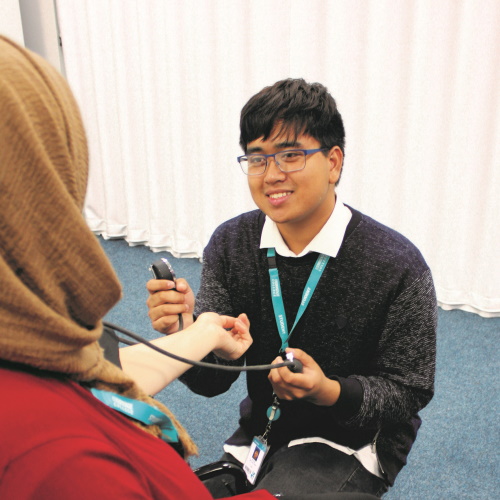Content for the 9 units includes:
Principles of communication in adult social care
The importance of communication & confidentiality in adult care settings, how to reduce barriers to communication and meet individuals’ communication needs, wishes and preferences
Principles of personal development in adult social care
Explore the requirements for good practice in adult social care roles and look at how a personal development plan can contribute positively to an individual’s learning and development.
Principles of diversity, equality and inclusion in adult social care
This unit enables you to understand the importance of diversity, equality and inclusion in an adult social care setting plus how to work in an inclusive way and how to access information, advice and support about the key aspects of diversity, inclusion and discrimination
Principles of safeguarding and protection in health and social care
Learn how to identify signs of abuse, respond to suspected or alleged abuse, reduce the likelihood of abuse, and recognise and report unsafe practices as well as the national and local context of safeguarding and protection from abuse.
Introduction to duty of care in health, social care or children’s and young people’s settings
The implications of duty of care, the support that is available for addressing dilemmas that may arise in relation to duty of care, how to respond to & work procedures for handling complaints.
Understand the role of the social care worker
Explore the different types of working relationships in social care settings and how important it is to work in partnership with others plus the importance of following workplace policy & procedures
*Understand person-centred approaches in adult social care settings
- Understand health & safety in social care settings
- Understand how to handle information in social care settings
-
Entry requirements
Entry Test in English and Maths.
HRUC has to give priority to applicants who are in receipt of the four main
benefits: Job Seekers Allowance, Employment Support Allowance, Universal
Credit, Income Support. Training is free for people with Right to Work in the
UK, proof of ID, learners or their spouses must have been a resident in
UK/EU for the last 3 years.
To be eligible whilst working, those living inside the Greater London Area
need to earn less than £21,547.50.
You must live in a London borough postcode. If you live outside the Greater London Authority area, we may still be able to fund you –
please contact us to find out. Please look up here: https://www.london.gov.uk/sites/default/files/gla_postcode_map_a3_map1.pdf -
Who is the course for?
This qualification is suitable for those who are looking to work in, or widen their knowledge of, the adult social care sector. The course will develop your knowledge of the responsibilities of adult social care workers, the diverse needs of the people using the services, and other important factors such as abuse and safeguarding.
-
Study methods
A variety of methods including lectures, discussions, independent research and practical activities.
-
How is the course assessed?
Candidates will be required to complete a portfolio of assessments. 100% internal assessment for each unit.
-
More information
Free, subject to meeting entry requirements
12 - Weeks ( Half a day per week), 10-1pm -
Where Next – Job Opportunities
This qualifications provides pathway into the sector of Adult Social Care for a number of individuals, from school leavers to people returning to work after a career break and those seeking work.
-
Where Next – Further Studies
Level 2 Diploma in Care (Adults)
-
How to apply
To apply for a course either click the APPLY NOW button - fill out the form online and submit
OR download an application form here and post it to the address on the form.
When we have received your application we will contact you to arrange an interview time.

